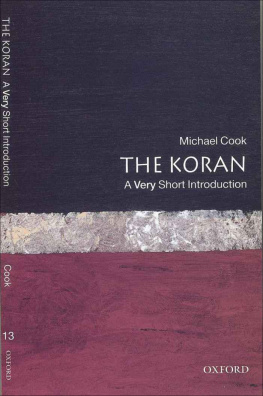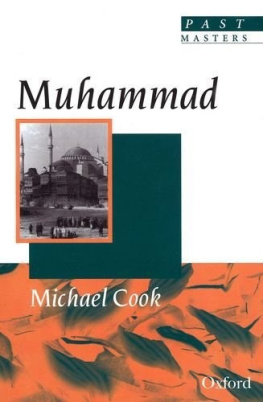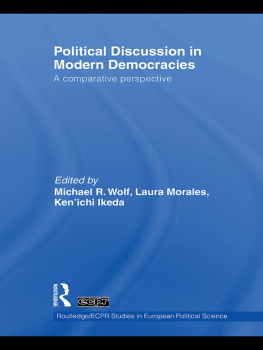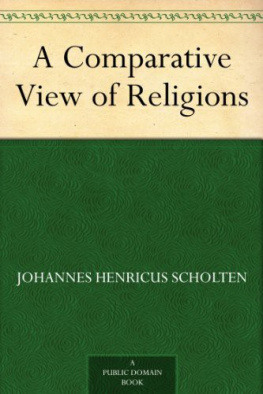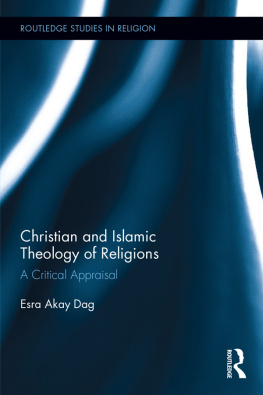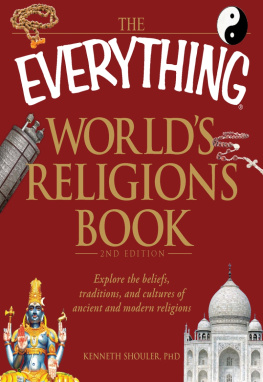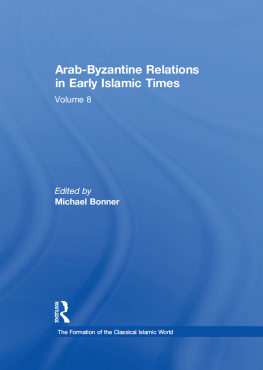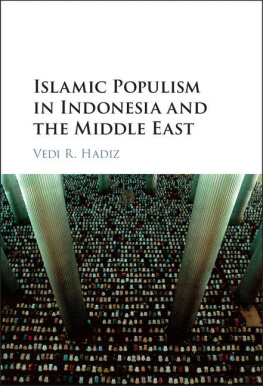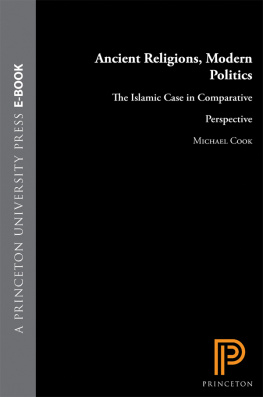Michael Cook - Ancient Religions, Modern Politics: The Islamic Case in Comparative Perspective
Here you can read online Michael Cook - Ancient Religions, Modern Politics: The Islamic Case in Comparative Perspective full text of the book (entire story) in english for free. Download pdf and epub, get meaning, cover and reviews about this ebook. year: 2014, publisher: Princeton University Press, genre: Politics. Description of the work, (preface) as well as reviews are available. Best literature library LitArk.com created for fans of good reading and offers a wide selection of genres:
Romance novel
Science fiction
Adventure
Detective
Science
History
Home and family
Prose
Art
Politics
Computer
Non-fiction
Religion
Business
Children
Humor
Choose a favorite category and find really read worthwhile books. Enjoy immersion in the world of imagination, feel the emotions of the characters or learn something new for yourself, make an fascinating discovery.

- Book:Ancient Religions, Modern Politics: The Islamic Case in Comparative Perspective
- Author:
- Publisher:Princeton University Press
- Genre:
- Year:2014
- Rating:5 / 5
- Favourites:Add to favourites
- Your mark:
- 100
- 1
- 2
- 3
- 4
- 5
Ancient Religions, Modern Politics: The Islamic Case in Comparative Perspective: summary, description and annotation
We offer to read an annotation, description, summary or preface (depends on what the author of the book "Ancient Religions, Modern Politics: The Islamic Case in Comparative Perspective" wrote himself). If you haven't found the necessary information about the book — write in the comments, we will try to find it.
Ancient Religions, Modern Politics: The Islamic Case in Comparative Perspective — read online for free the complete book (whole text) full work
Below is the text of the book, divided by pages. System saving the place of the last page read, allows you to conveniently read the book "Ancient Religions, Modern Politics: The Islamic Case in Comparative Perspective" online for free, without having to search again every time where you left off. Put a bookmark, and you can go to the page where you finished reading at any time.
Font size:
Interval:
Bookmark:
Ancient religions, modern politics

Ancient religions, modern politics
THE ISLAMIC CASE IN COMPARATIVE PERSPECTIVE

Michael Cook
PRINCETON UNIVERSITY PRESS
PRINCETON AND OXFORD
Copyright 2014 by Princeton University Press Published by Princeton University Press, 41 William Street, Princeton, New Jersey 08540
In the United Kingdom: Princeton University Press, 6 Oxford Street, Woodstock, Oxfordshire OX20 1TW
press.princeton.edu
Jacket art: Yahya ben Mahmud al-Wasiti. Dpart dune caravane de plerins pour la Mecque, 1237. RC-A-23269, ARABE 5847. Courtesy of Bibliothque nationale de France
All Rights Reserved
Library of Congress Cataloging-in-Publication Data
Cook, Michael, 1940
Ancient religions, modern politics : the Islamic case in comparative perspective / Michael Cook.
pages cm
Summary: Why does Islam play a larger role in contemporary politics than other religions? Is there something about the Islamic heritage that makes Muslims more likely than adherents of other faiths to invoke it in their political life? If so, what is it? Ancient Religions, Modern Politics seeks to answer these questions by examining the roles of Islam, Hinduism, and Christianity in modern political life, placing special emphasis on the relevanceor irrelevanceof their heritages to todays social and political concerns. Michael Cook takes an in-depth, comparative look at political identity, social values, attitudes to warfare, views about the role of religion in various cultural domains, and conceptions of the polity. In all these fields he finds that the Islamic heritage offers richer resources for those engaged in current politics than either the Hindu or the Christian heritages. He uses this finding to explain the fact that, despite the existence of Hindu and Christian counterparts to some aspects of Islamism, the phenomenon as a whole is unique in the world today. The book also shows that fundamentalismin the sense of a determination to return to the original sources of the religionis politically more adaptive for Muslims than it is for Hindus or Christians. A sweeping comparative analysis by one of the worlds leading scholars of premodern Islam, Ancient Religions, Modern Politics sheds important light on the relationship between the foundational texts of these three great religious traditions and the politics of their followers todayProvided by publisher.
Includes bibliographical references and index.
ISBN-13: 978-0-691-14490-0 (hardback)
ISBN-10: 0-691-14490-7 (cloth)
1. Islam and politics. 2. Christianity and politics. 3. Hinduism and politics. 4. Islamic fundamentalismPolitical aspects. 5. Religious fundamentalismPolitical aspects. I. Title.
BP173.7.C665 2014
297.272dc23
2013039833
British Library Cataloging-in-Publication Data is available
This book has been composed in Charis SIL
Printed on acid-free paper.
Printed in the United States of America
1 3 5 7 9 10 8 6 4 2
This book is for Jackie,
who rashly promised to read it

Contents

Preface

A NYONE WHO LIVES IN THE early twenty-first century and follows the news will have noticed that ancient religions play a significant part in modern politics. These religions are not, however, by any means interchangeable in their political roles. Most obviously, it is hard to miss the fact that Islam today has a higher political profile than any of its competitors. But why should that be so? Is there something about the formal or substantive character of the Islamic tradition that makes its invocation an attractive option for Muslim individuals and groups that are politically active in a modern contextsomething that is not found in other religious traditions? Is there a reason why one can understand the contemporary politics of India and Latin America perfectly well without having heard of such medieval luminaries as Mdhava and Aquinas, whereas one cannot hope to understand the politics of the contemporary Islamic world without having heard of Ibn Taymiyya? This is a major question about the world we live in, but my sense is that much of the literature on the politics of the Islamic world tends either not to attend to the issue or to deal with it rather crudely. In this book I attempt to respond to the question with at least a partial answer.
To do this I have approached the Islamic case in a comparative setting. I thus seek to compare the role of Islam in modern politics with the parts played by Hinduism and Christianitythe latter mainly in the Latin American context. That I picked this particular pair is in some measure accidental, but there is also a certain logic to it: I wanted heritages to which large Third-World populations owe allegiance. This does not prevent me from referring occasionally to such faiths as Judaism and Sikhism, but I make no attempt to include them in a systematic way. The methods I employ throughout are those of a historian, since these are just about the only ones I know how to use. I would hope, however, that my disciplinary readership will not be limited to historians. Thus, political scientists may find some of the book of interest, though it will not attempt to emulate the methodological rigors of their discipline. So also may those engaged in the academic study of religion, though they may find my treatment rather philistinemy subject, after all, is religion in politics, not religion in itself. But I would also hope that the book will be accessible, and have some illumination to offer, to reasonably determined readers coming to it with nothing more than an interest in one or another of the relevant aspects of world affairs.
The answer I offer to the question I pose is partial not just for the obvious reason that my treatment is uneven and incompletewhat I know being nothing compared to what I dont know. It is also partial because my primary focus is on the differences between the three traditions, even if I have a lot to say about the differences between the political contexts in which they are invoked or ignored. My main argument is that the three traditions offer significantly different combinations of assets and liabilities for those engaged in modern politics and that this makes them variously attractive or unattractive to such actors as political resources. There are, of course, very different ways to think about the relationship between ancient heritages and political action in the modern worldfor example, one could see them as mascons exercising a subterranean pull on the political trajectories of their adherents; but such a conception is not central to my argument. In the same way there are many good questions other than mine to be asked about the role of religion in contemporary politics, but answering them is not at the core of the task I have set myself.
As a glance at the table of contents will show, the book, like Gaul, is divided into three parts, each devoted to a major comparative theme.
completes the argument by showing that in the context of Latin American Christianity a political identity of this kind is even more elusive than in the Hindu case.
takes up conceptions of the polity. On the one hand it shows that the three religions shared a pattern of close relations with kingship for most of their history; but on the other hand it brings out the distinctiveness of the early caliphate and its latter-day appeal. In different ways each of these chapters throws the Islamic case into relief.
Next pageFont size:
Interval:
Bookmark:
Similar books «Ancient Religions, Modern Politics: The Islamic Case in Comparative Perspective»
Look at similar books to Ancient Religions, Modern Politics: The Islamic Case in Comparative Perspective. We have selected literature similar in name and meaning in the hope of providing readers with more options to find new, interesting, not yet read works.
Discussion, reviews of the book Ancient Religions, Modern Politics: The Islamic Case in Comparative Perspective and just readers' own opinions. Leave your comments, write what you think about the work, its meaning or the main characters. Specify what exactly you liked and what you didn't like, and why you think so.

